Comparison of LG and Samsung TVs
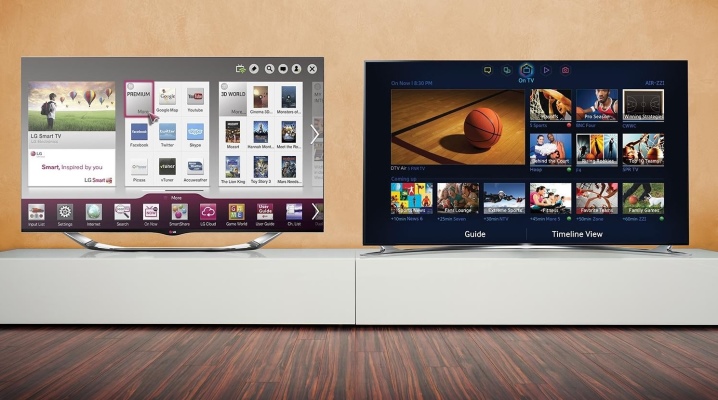
Comparison of LG and Samsung TVs is inevitable - these South Korean brands produce products in the same price segment and are considered direct competitors. Disputes about which TV is better to choose, by what characteristics to compare, do not subside for many years. For the average consumer, technical details are often not important, but there are a number of brand features that should still be taken into account when making a purchase decision.
Features of TVs
LG and Samsung TVs are among the market leaders in the mid-range segment. Each brand has both loyal supporters and opponents.
Samsung is a brand from South Korea that has been successfully operating for over 80 years in the household and electronic appliances market. The experience and authority of the company are undeniable throughout the world. It does not pursue an aggressive marketing policy, it is building up its positions mainly in the premium and elite direction of development.
The brand's TVs are presented in different sizes, there are interior design models and classic options with a frame screen.
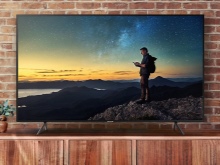
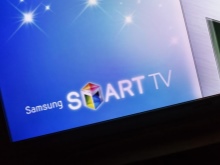
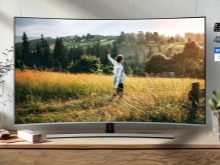
LG is also based in South Korea, has been successfully operating for over 70 years, and is rightfully considered the main supplier of innovations. The company placed its stake on the search for alternative ways. It is interesting that it was she who released the first Korean-made TV in 1966, then still under the GoldStar brand. In 1997, the LG brand created the only microcircuit at that time, which made it possible to create a digital TV. A year later, the company released the world's first plasma display.
Is it any wonder that even today the company is quite successfully coping with its role as the world market leader. LG's TV lineup includes both compact 22-inch models and 77-inch panels that allow you to turn watching video content into a real movie show. The company successfully produces TV with a curved screen, which guarantees its fans a soft and natural color reproduction.
The assortment of the brand includes products for every taste - from budget to luxury, and it is not surprising that the demand for it only increases every year.
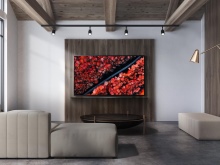
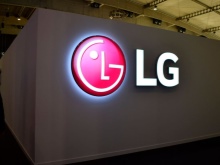
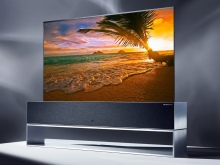
Comparison by characteristics
When you need to compare TVs of 2 well-known manufacturers, it is best to immediately pay attention to the parameters that are critical for a particular user. For example, the type of matrix or the Smart TV operating system, the quality of the broadcast picture, ease of control, general functionality. All these characteristics directly affect how comfortable watching TV programs, streaming video, and using the device's media capabilities will be.
Appearance
Visually, Samsung and LG TVs have many similarities. The emphasis is on minimum body thickness, narrow bezels and maximum screen area. Everything to ensure that watching films remains extremely comfortable, allowing you to fully immerse yourself in the action.
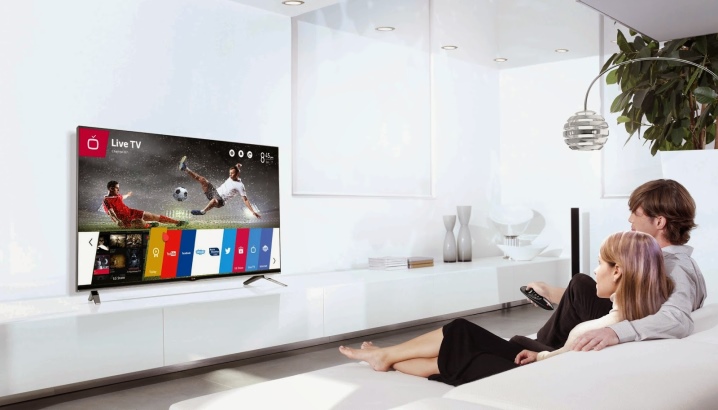
The first thing that you can notice are major differences: the type of stand you are using. For LG, this structural element is movable, it can be tilted at different angles and rotated. Samsung uses a static version, the shape of the stand is usually rectangular.
Another important difference is the location of the connectors. Samsung has them on the right, LG fixes a bracket for connecting external devices to the left edge of the rear panel.
Interestingly, both Samsung and LG have been paying a lot of attention to the creation of TV models lately. with curved monitor, providing complete immersion in the events taking place on the screen. Such devices look interesting, but take up significantly more space than their usual flat counterparts.
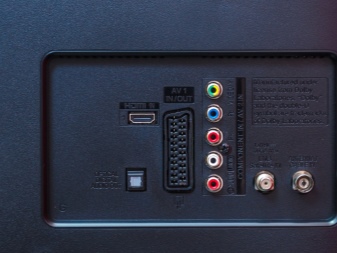
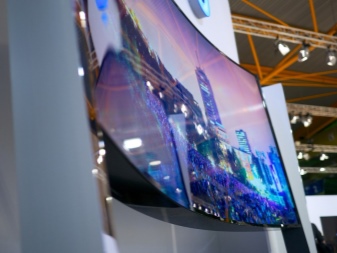
But only Samsung has a special "designer" or interior series. The Serif line includes models with a high easel stand, which can be used without it due to the wide stable frame.

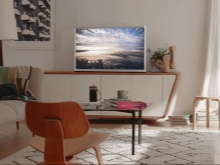

Image quality
It is customary to pay attention to this parameter in the first place. Here LG and Samsung have a roughly equal position. TVs are equipped with LED backlighting, providing high-quality reproduction of black color, richness and saturation of the entire palette. Such screens retain good picture clarity even in bright sunlight.
Concerning backlight quality, here in the lead Samsung. Its screens are equipped with LEDs evenly distributed over the entire display area. At LG, they are presented in the form of strips along the edges of the frame. When viewed, this can cause darkening in the corners, which is not very good for the TV experience.
Each of the brands produces 4K models and variants that support HDR format, Samsung already even has 8K, but so far the amount of content available for viewing in this category is extremely small. Therefore, here we can rather talk about playing ahead of the curve.
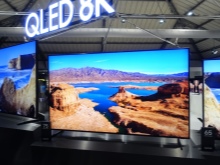
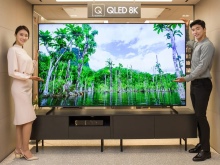
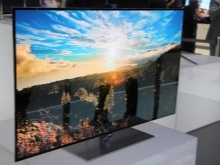
Optionally models with Full HD screens ahead of LG. Samsung has more Ultra HD TVs, you can choose a convenient diagonal for any room.
Concerning matrices, here the struggle is rather fierce. So far, Samsung is the loser with its VA versions that do not have a normal side view. Despite the increased contrast, you can watch such a TV only being directly in front of its screen. IPS-matrices from LG are devoid of this drawback, they demonstrate, indeed, a wide viewing angle.
Concerning premium categories, here each of the brands prioritizes OLED technology. OLED matrices from LG and QLED from Samsung are almost identical, provide high color depth and image contrast. These TVs have only one drawback: pixels fade over time.
Concerning frame refresh rate, important when using a TV as a screen for a game console or watching football matches, here Samsung is clearly in the lead with its 100 Hz versus LG's 50 Hz. Even the most dynamic broadcasts with its performance can be watched without freezing the picture.
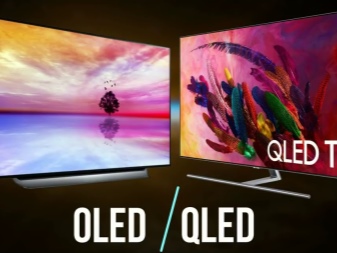
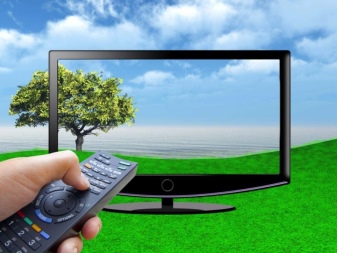
Smart TV
Feature comparison Smart TV for LG and Samsung to do it is quite difficult. Each of the brands uses their own designs. Samsung has JS Tizen, LG has WebOS. The second option is better optimized for large diagonal screens. In early models, LG's smart functions were controlled using a conventional universal remote. Today, both companies have developed special "pointers" adapted to control applications and options on the big screen much better than conventional IR models.
When it comes to operating system functionality, Samsung does not tolerate competition here. One of the leaders in the smartphone market is not ready to make compromises in the development of TVs. Almost all proprietary functions and integrated applications are supported here, many are adapted specifically for the large screen. In addition, the store has applications for watching IP TV, allowing you to significantly expand the horizons of information and entertainment broadcasting.
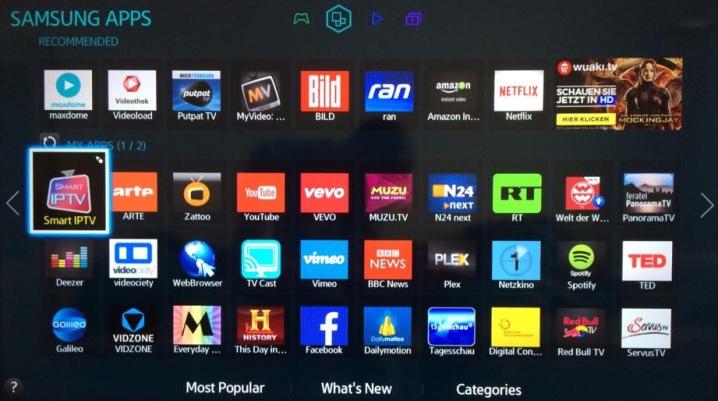
Other
The list of characteristics for comparing TVs of the two market flagships is quite long. The most interesting ones should be given a little more attention.
- Sound quality. Samsung has carefully thought out this point - Sports Mode is the default on all TVs of the latest generations. This allows for clear and spacious sound even when using only the built-in speakers and stereo system. For LG, with its rather weak acoustics, the purchase of external speakers and a subwoofer in addition to the TV is becoming an urgent need.
- 3D. 3D technology is supported by TVs from each of the compared manufacturers. The difference is in the details, that is, in the glasses.LG uses the lightest design possible and applies a polarizing coating to the screens, but the technology is only normally implemented in 4K due to the reduction in resolution. Samsung has glasses in older versions - not only were they much heavier, but also flickered. Now this effect has been eliminated, but the massiveness of the structure has not gone anywhere.
- External interfaces. The companies do not really compete in the set of available connectors. All top TV models are equipped with 3-4 HDMI, USB ports, they have Wi-Fi, Bluetooth modules and outputs for connecting external sources of wired communication, speaker systems. Accordingly, it is not necessary to focus on these points: everything you need is “on board” and so it will be.
- Remote controller. At LG, all functions are conveniently implemented in a single gadget in the form of a pointer with a scroll wheel, while the block of numeric buttons is also preserved. The competitor finds a compromise in the release of 2 versions of the remote control at once - in the form of a pointer and a mini-remote control with a limited set of buttons. In addition, Samsung TVs respond faster to remote control commands.
- Options. Support for cable and satellite TV without external receivers, timer, voice control, child protection are implemented at approximately the same level for each of the brands. But in terms of integration with other devices - headphones or smartphones - Samsung is doing better.

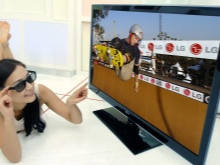

Although these parameters are not of key importance when choosing a TV, they still affect the comfort in using technology. Accordingly, you should not forget about them when evaluating the proposals of each of the brands.
Which to choose?
When choosing a TV from LG or Samsung, the owners are forced to make a decision based mainly on their own preferences. Objectively, each company has very successful models and series, and today you can choose the resolution and screen curvature to your taste. If you have special requirements for the clarity and contrast of the picture, you want to watch high-quality content in 4K-, 8K-resolution, you should choose a TV from Samsung. The same brand is still leading in the implementation of smart TV capabilities. Tizen regularly receives updates, and the store pleases users with a variety of games and applications available, in addition, a proprietary “smart home” system is implemented on the basis of the platform.
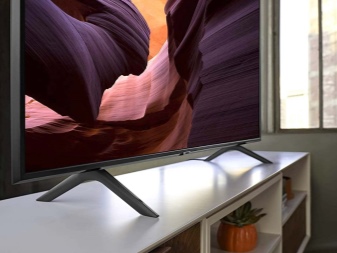
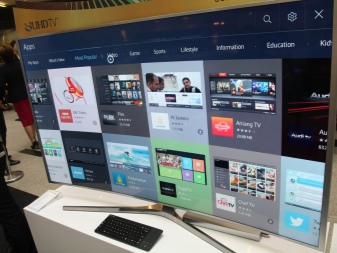
As for LG, the brand looks better in engineering and technical solutions, the ergonomics of the devices are better thought out - from the stand to the remote control. In addition, despite the lower resolution, viewing 3D content on this brand's TVs is much more enjoyable. As for the viewing angle on TVs with IPS-matrices, there are also much fewer complaints than those of their closest competitors.
When it comes to watching streaming video or sports broadcasts, connecting a set-top box, you should still trust the authority of Samsung. The company, indeed, has better implemented all aspects related to the frame rate. Accordingly, the content will start without delays or problems, and the kick on the ball in real time will be at the same speed as on the screen. For a PS-type set-top box, a frequency of at least 100 Hz is required.
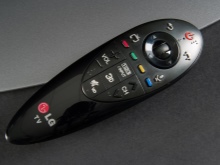
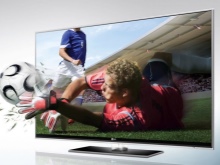
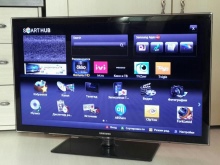
As for the cost, the difference in price with equal indicators of the diagonal and the resolution, here LG has very advantageous offers. Samsung is still considered a more upscale manufacturer and is more actively innovating. When making a final decision, it should be borne in mind that with a Full HD resolution and a small diagonal size, IPS matrices do their job better.
If you're looking to buy a 4K smart TV, Samsung will have a clear edge over the competition.
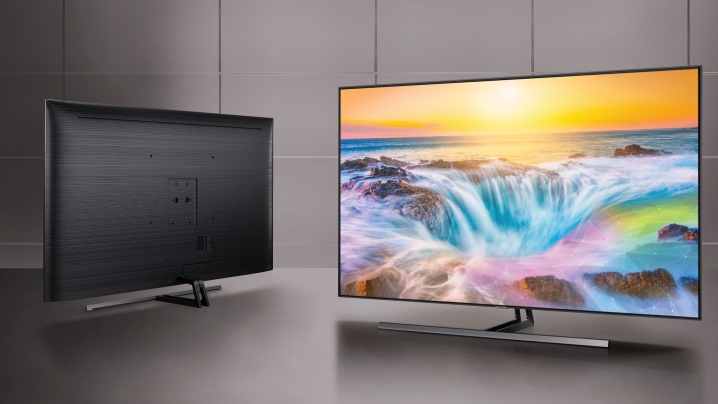
Which is better to choose - LG or Samsung TVs, see below.













The comment was sent successfully.